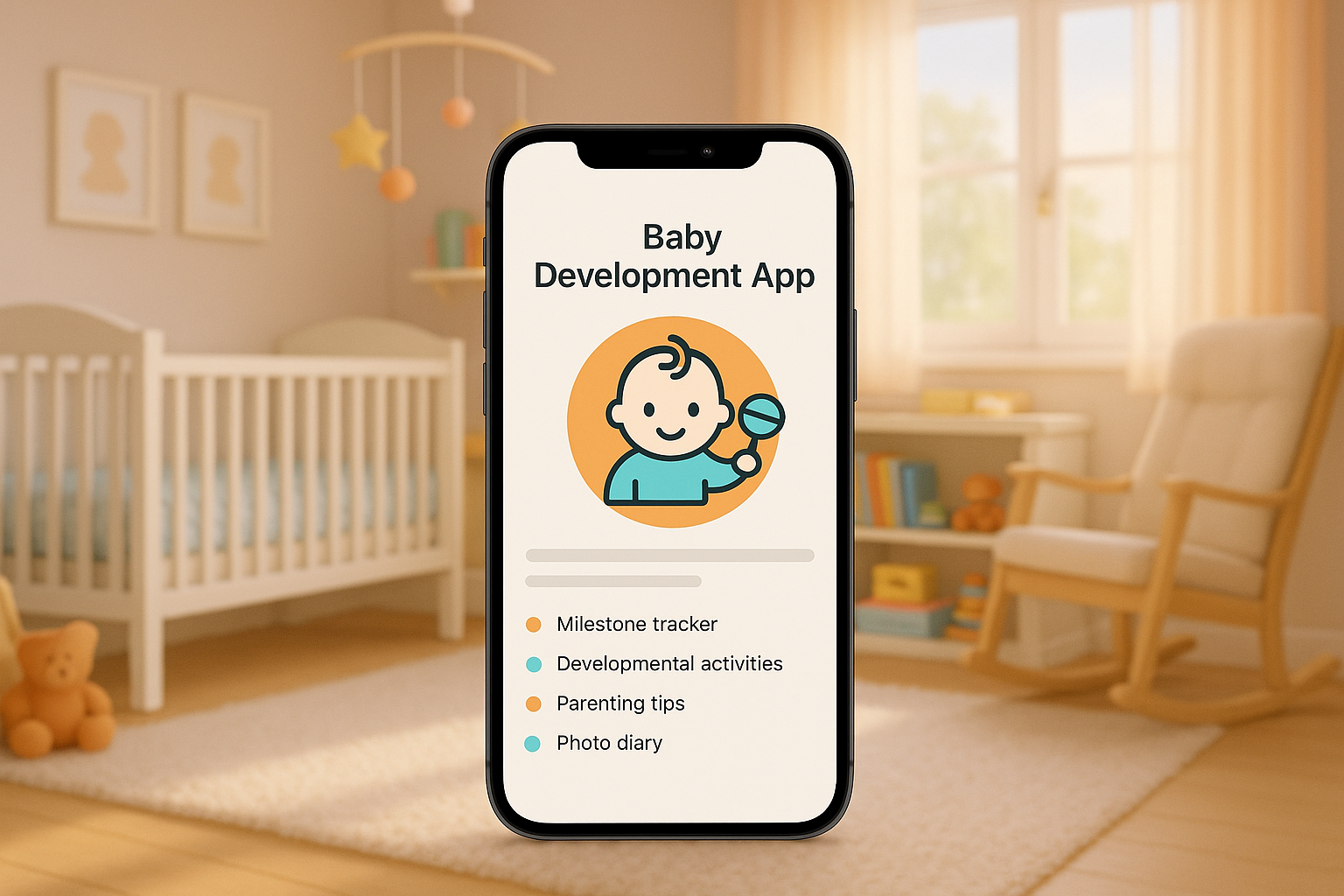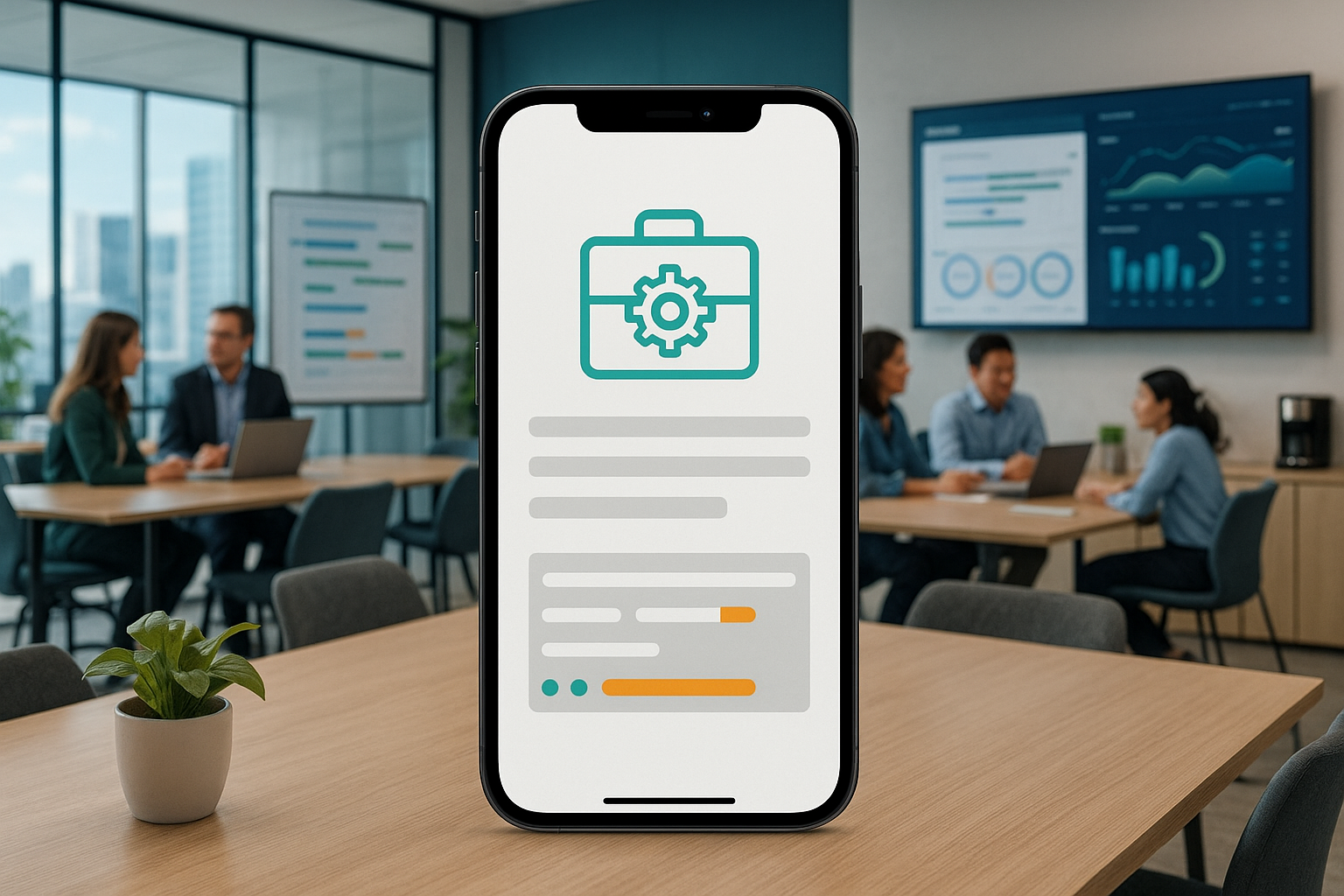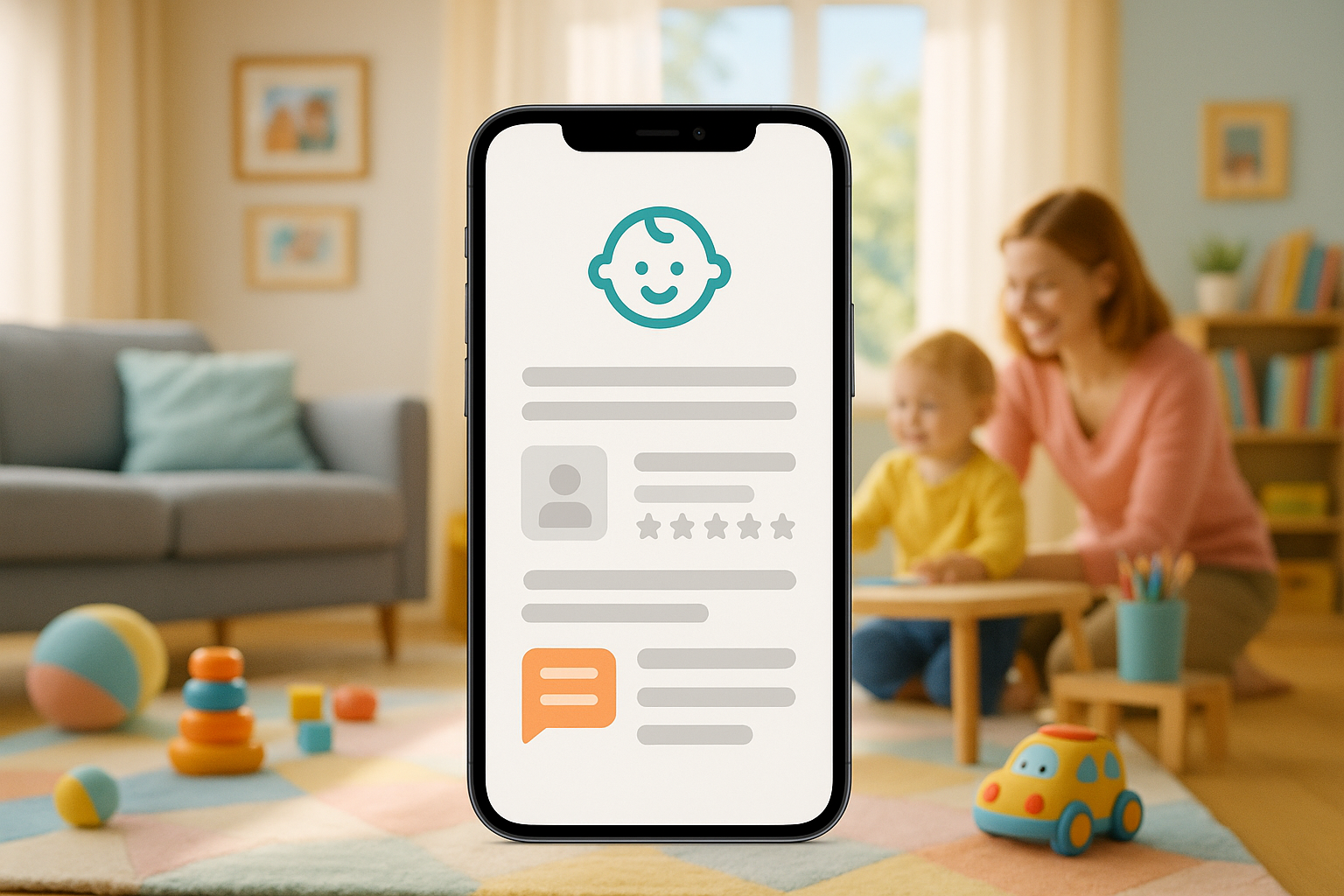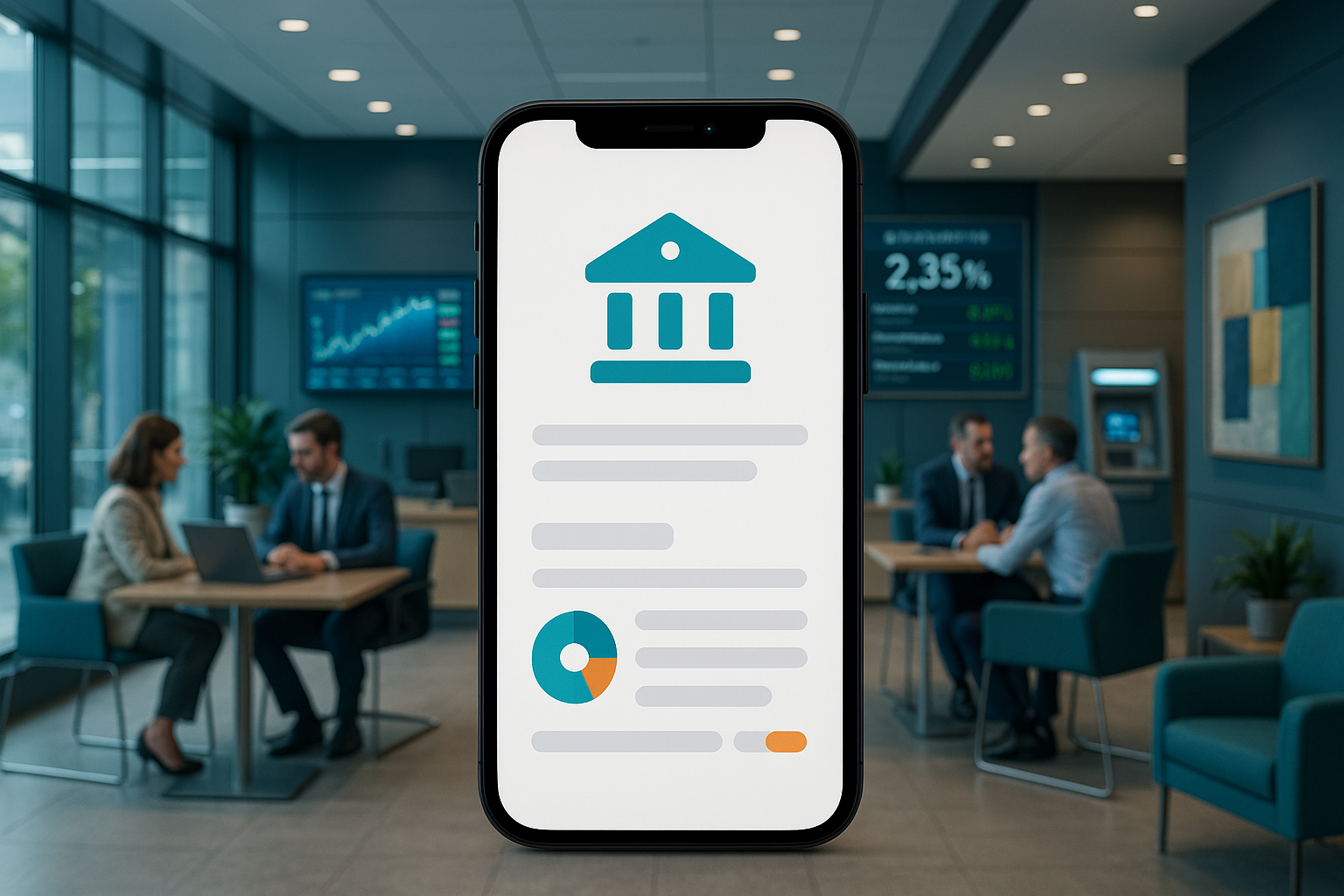The Rewarding Challenge of Building a Baby Development App
In the digital age, new parents are increasingly turning to technology for guidance, support, and a way to chronicle the precious, fleeting moments of their child’s early years. This has led to a burgeoning market for baby development apps, powerful tools that offer everything from milestone tracking to expert-backed developmental activities. The desire to create an app that genuinely helps parents and nurtures a child’s growth is a powerful motivator for entrepreneurs and established companies alike.
However, the path from a great idea to a successful, trusted app is fraught with complexity. Developing a baby development app is not merely a technical exercise; it is an undertaking that requires a deep understanding of child development, data privacy, user engagement, and the unique psychological needs of new parents. Attempting this in-house can quickly become overwhelming, leading to apps that fail to find their audience or, worse, offer unsafe advice.
This article serves as a comprehensive guide to the world of baby development app development. We will explore what these apps are, the significant challenges involved in their creation, the different types you can build, and a realistic breakdown of the associated costs. We will also look at the top companies behind successful apps in this space. As a leading US-based, AI-enabled mobile app development firm, we at MetaCTO have helped countless ventures navigate this journey. We understand the stakes, and we are here to show you how to transform your vision into an app that is not just functional, but exceptional.
What is a Baby Development App?
At its core, a “Baby Development & Milestones” app is a multifaceted digital companion for parents of children aged 0-3 years. Its primary purpose is to help parents support and unlock their baby’s developmental potential, ensuring they meet key baby milestones in a healthy, timely manner. These apps go far beyond simple diaries; they are interactive, data-driven platforms designed to provide the right stimulation at the right time during a child’s most formative first three years.
To achieve this, these applications are packed with a rich array of features designed to inform, track, and engage.
Core Features of Modern Baby Development Apps
A successful baby development app is a cohesive ecosystem of tools and content. While individual apps may specialize in certain areas, the most comprehensive solutions typically integrate the following components:
-
Developmental Activities and Milestones: This is the heart of the app. It includes a vast library of daily baby development activities—often over 1000—that are playful, screen-free, and backed by experts. These activities are designed to be easy-to-do with minimal materials and stimulate growth across key domains: Physical, Cognitive, Communication, and Social-Emotional. The app includes a baby milestones tracker, often presented as a checklist or a series of simple “yes, no, almost” questions, to benchmark a baby’s growth against established norms. If a child is lagging in a specific area, the app can intelligently suggest activities to target that milestone.
-
Comprehensive Tracking: Modern parents crave data. These apps provide a suite of free activity trackers to monitor the daily routine. This includes:
- Feeding: A baby feeding tracker, a dedicated breastfeeding tracker, a feed timer, and a comprehensive baby feeding log.
- Sleep: A baby sleep tracker to monitor patterns and duration.
- Diapers: A diaper change tracker, often with specific poop and pee trackers to monitor health.
- Growth: A growth tracker to log weight, height, and head circumference, often presented in Baby Development Charts to visualize progress against other babies of the same age.
-
Nutrition and Meal Planning: As a baby transitions to solids, parents need guidance. These apps often function as infant feeding apps, providing detailed, age-customized recipes and baby food recipes from 6 months onward. A standout feature is the inclusion of Baby-Led Weaning (BLW) meal plans, frequently created by child nutritionists to foster healthy self-feeding habits.
-
Parenting Resources and Support: Beyond the baby-centric features, these apps are a lifeline for parents. They offer a wealth of parenting tips, articles on essential topics like baby health, and even free bedtime stories to help instill early reading habits. Many also include “baby connect” features, creating communities where parents can share experiences and ask questions.
By integrating these features, a baby development app becomes an indispensable tool that empowers parents, tracks progress, and ensures the overall development of the child.
Why In-House Baby App Development is So Difficult
While the feature list of a baby app may seem straightforward, the underlying challenges of building one in-house are profound and unique to this sector. The sensitive nature of the data, the high emotional stakes for users, and the need for scientific validity create a landscape where mistakes are not easily forgiven. Hiring an expert development partner like MetaCTO can be the difference between launching a trusted resource and a failed project.
Here are the primary challenges you will face:
1. Navigating a Regulatory and Safety Minefield
A significant hurdle is the lack of established regulatory frameworks and guidelines specifically for creating safe and effective maternal and infant apps. This ambiguity places an enormous burden on the developer. You are not just building software; you are creating a health and wellness tool that parents will use to make decisions about their child’s development. Ensuring the activities, milestones, and advice are medically and developmentally sound is paramount. Without a team experienced in health-tech compliance and a network of pediatric experts, you risk disseminating harmful misinformation.
2. Achieving True User-Centricity
Many maternal and infant health apps fail because they are not developed with the pregnant person or mother’s needs truly in mind. An app might be technically proficient but emotionally tone-deaf or impractical for a sleep-deprived parent to use. Furthermore, most apps are not designed for women with low income or culturally diverse, non–English-speaking women, creating a significant accessibility gap. At MetaCTO, our process begins with deep user research and a Validate phase to ensure the product resonates with its target audience before a single line of code is written.
3. Ensuring Continuous End-User Engagement
A startling finding from research is that very few app development processes include participants in all aspects of research and development. True engagement is not just a one-time focus group. It is an ongoing dialogue throughout design, building, and testing. This iterative feedback loop is critical for creating an app that feels intuitive and becomes a daily habit for users. In-house teams often lack the structured processes to manage this level of sustained user involvement, a core tenet of our agile development methodology.
4. The Challenge of Healthcare System Integration
A unique and technically demanding challenge is the integration of apps into health care information systems architecture. For an app to reach its full potential, it could one day share data with a pediatrician’s electronic health record (EHR) system. This requires deep expertise in healthcare APIs, data security standards like HIPAA, and system interoperability. This is not a skill set found in a typical in-house development team and directly influences the app’s long-term utility and sustainability.
5. Lack of Institutional Guidance
Health researchers themselves report difficulty navigating the maternal and infant app landscape. There is a lack of additional direction on how to set policies in place, including professional or institution-specific guidelines for safety and standardization. When even the experts are looking for a map, building in-house is like navigating a storm without a compass. Partnering with a firm that has launched over 120 successful projects, including those in the health and wellness space, provides the experienced guidance needed to chart a safe and effective course.
Different Types of Baby Development Apps
The baby app market is not monolithic. While many apps are comprehensive, several specialize in specific areas to cater to different parental needs. Understanding these categories can help you define your niche and focus your development efforts.
Baby & Mom Tracker Apps
These are the data-centric workhorses of the baby app world. Their primary function is logging and tracking. Parents use them to meticulously record every detail of their baby’s day, from feeding times and amounts (breast milk or formula) to sleep durations and diaper changes. Many, like The Bump and Pregnancy+, also begin as pregnancy trackers, guiding the user from conception through the postpartum period. The value here is in pattern recognition—the app evaluates trends and presents summaries, helping parents understand their baby’s rhythms and troubleshoot issues like sleep regressions or feeding problems.
Development Activity Apps
These apps, exemplified by platforms like BabySparks, are focused on proactive development. Their core offering is a curated library of age-appropriate, expert-backed activities. They explain not just what to do, but why—detailing how a specific playtime activity enhances gross-motor skills, fine-motor skills, cognition, or language. They often gamify the process, allowing parents to track completed activities and see their baby progress through various developmental milestones. These apps are less about passive tracking and more about active, engaged parenting.
Baby Food & BLW Meals Apps
Focused squarely on nutrition, these apps are digital recipe books and meal planners. They provide parents with detailed recipes customized to a baby’s age, from first purees to more complex toddler meals. A popular sub-category is the BLW (Baby-Led Weaning) app. These platforms provide meal plans created by child nutritionists, teaching parents how to introduce solid foods in a way that encourages self-feeding and a healthy relationship with food. They often include features like allergy tracking and grocery list generation.
Cost Estimate for Developing a Baby Development App
Determining the budget for your app is one of the most critical steps. The cost to develop a baby tracking or development app can range widely, from $8,000 to over $25,000, depending on a host of factors. It is essential to understand what drives these costs to plan effectively.
Key Factors Influencing Development Cost
-
Complexity and Features: This is the single biggest cost driver. A basic app with simple tracking for diapers and feeding is at the lower end. As you add features like a baby milestone tracker with personalized activity suggestions, video-based content, BLW meal plans with recipes, user profiles that sync across multiple caregivers, and data visualization charts, the complexity and cost increase significantly. Advanced features, such as AI-driven health trend analysis or growth projections, will push the app into the complex, higher-cost tier.
-
Platform (iOS vs. Android vs. Cross-Platform): Developing a native app for iOS and a separate native app for Android costs more than cross-platform development, which uses a single codebase for both platforms. Native development offers the best performance and platform integration, while cross-platform development can reduce initial costs.
-
Design (UI/UX): A simple, template-based design is cheaper than a fully custom UI/UX. The cost includes wireframing, prototyping, and the actual design work. An intuitive, appealing, and user-friendly design is critical for retaining users but requires more development hours and thus a larger budget.
-
Backend Development: The backend is the engine of your app. Its cost is affected by the number of users it needs to support, the complexity of its features, and the need for real-time data synchronization between devices. Features like cloud storage for photos and notes will also increase backend complexity and server costs.
-
Third-Party Integrations: Integrating with external services adds to the cost. This can include analytics platforms to track user behavior, cloud storage providers for data backup, or even APIs for wearable devices like smart socks that monitor a baby’s vitals. These integrations require development effort and may come with their own subscription fees.
-
Security and Compliance: For an app handling sensitive child and parent data, security is non-negotiable. Implementing end-to-end encryption, secure authentication methods (including more complex biometrics), and ensuring compliance with data protection laws like GDPR and COPPA requires specialized development resources and adds to the overall cost.
Cost Tiers at a Glance
To simplify, we can break down the costs into three general tiers:
| App Type | Feature Set | Estimated Cost |
|---|---|---|
| Basic | Simple, manual tracking for 1-2 areas (e.g., feeding, diapers). Standard UI. No cloud sync. | $8,000 – $12,000 |
| Moderate | Multiple tracking features, basic milestone checklist, some customization, user profiles, simple charts. | $12,000 – $15,000 |
| Complex | Advanced tracking, personalized activity plans, video content, AI analysis, third-party integrations, custom UI/UX, robust security. | $15,000 – $25,000+ |
It is also vital to budget for ongoing maintenance and updates. These are not part of the initial development cost but are essential for fixing bugs, ensuring compatibility with new operating systems, and keeping the app secure over time.
Top Baby Development App Development Companies
Choosing the right development partner is the most important decision you will make. You need a team that not only has technical prowess but also understands the nuances of the parenting market.
1. MetaCTO
As a premier, US-based AI-enabled mobile app development agency, we are uniquely positioned to build next-generation baby development apps. We don’t just write code; we partner with you through every stage of the journey to ensure your app is a market success. Our experience with clients like Mamazen, the #1 mindfulness app for parents, demonstrates our deep understanding of this space.
Our process is designed to mitigate risk and maximize value:
- Validate: We can launch a Rapid MVP in as little as 90 days. This allows you to test your core concept with real users, gather feedback, and attract investors without a massive upfront investment.
- Build: We handle the entire development process—from intricate UI/UX design to complex backend architecture and robust security implementation.
- Grow: Launching is just the beginning. We use analytics and A/B testing to optimize user onboarding, engagement, and retention, building a loyal user base for your app.
- Monetize: We help you implement the most effective monetization strategies, whether through subscriptions, one-time purchases, or other models, to turn your app into a sustainable business.
- Evolve: As your user base grows, we ensure your app’s technology scales with it. Our expertise in AI Development allows us to build the advanced, personalized features that define a market-leading, complex app—like predictive sleep schedules or developmental red-flag detection—that sets you apart from the competition.
Examples of Successful Apps
While we specialize in building apps, it is helpful to look at successful products in the market for inspiration. The companies below have created beloved apps that excel in their respective niches.
-
Huckleberry Labs Inc. (Huckleberry): A powerhouse in the tracking space, Huckleberry is an all-in-one app for logging sleep, feeding, diapers, and more. Its user-friendly interface and ability to have multiple caregivers update a schedule make it a parent favorite. Its premium versions use data to offer “SweetSpot” suggestions for optimal nap times.
-
The Wonder Weeks (The Wonder Weeks): This app focuses on the “why” behind a baby’s fussiness. Based on research into babies’ mental “leaps,” it helps parents anticipate and understand periods of crying and clinginess, providing an invaluable emotional roadmap for the early months.
-
Philips Digital UK Limited (Pregnancy+): A winner of the Good Housekeeping Parenting Awards, this app has a medical feel and is packed with information. Its standout features are the detailed, interactive 3D models that show fetal development, giving parents a stunning window into what’s happening inside.
-
Pathways Foundation (Pathways.org Baby Milestones): Another award-winner, this free app is a fantastic resource for tracking key milestones. It integrates with the foundation’s YouTube channel to provide a wealth of activity ideas and guidance for parents.
Conclusion: Build Your App the Right Way
The journey of developing a baby development app is both exciting and demanding. These apps serve a real need, offering invaluable support and guidance to parents during one of life’s most challenging and rewarding periods. As we have seen, success requires more than a good idea; it demands a deep understanding of developmental science, user psychology, data security, and complex technology.
The challenges of in-house development—from navigating non-existent regulations to ensuring true user-centricity and complex system integrations—are significant. The cost can vary widely, but a high-quality, feature-rich, and secure app is a substantial investment.
This is where a strategic partner becomes essential. By working with an experienced development agency, you can avoid common pitfalls, accelerate your time to market, and build a product that is safe, effective, and beloved by users. We at MetaCTO have the expertise, processes, and track record to guide you every step of the way, from validating your initial concept with an MVP to scaling a sophisticated, AI-powered platform.
If you are ready to turn your vision for a baby development app into a reality, let’s build it the right way, from day one.
Talk with a Baby Development app development expert at MetaCTO today.






